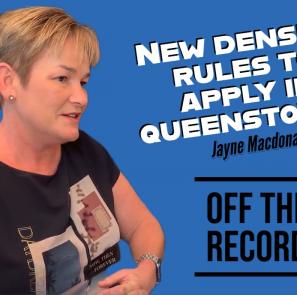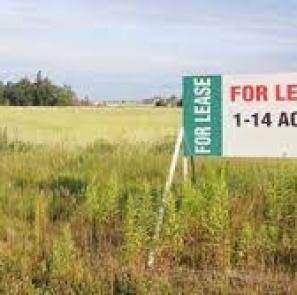Stay up to date with our latest News, Views & Resources by subscribing to our newsletter. We promise to provide you with quality content & the latest industry news.
Trust eSpeaking | Autumn 2024
Can your ex-spouse claim your property when you die?
Agreeing on a division of relationship property after you and your spouse separate can be fraught. Usually, emotions are highly charged.
When de facto couples separate, they can resolve their relationship property division immediately, and have no further financial involvement with each other. When married couples separate, however, they cannot divorce for two years and often divide their relationship property while still married. When a divorce does not take place immediately, this can mean the separated spouses still have rights – for example, to inherit if one of them dies. If the separated spouses do not intend this, their relationship property division must specifically address inheritance in order to prevent unintended consequences.
Relationship property agreement
A recent High Court decision[1] illustrates the type of problems that can arise. Alan O’Donoghue and Marc Comia married in 2016 and separated in 2019. The couple entered into a 2020 agreement about the division of their relationship property which was stated to be ‘in full and final settlement of all property claims each party has against the other, under any statutory enactment, in equity or in common law.’ The marriage was never formally dissolved. Alan died in 2021 without a will, so was ‘intestate.’
Separated spouse to benefit from intestacy?
Alan and Marc had no children. Alan was survived by his mother, but she gave up any interest in his estate. In those circumstances, unless the 2020 agreement was effective to resolve inheritance as well as relationship property matters, then Marc, as Alan’s husband (despite the separation) was entitled to the whole of Alan’s estate by virtue of section 77 of the Administration Act 1969, the legislation that sets out the shares in which surviving relatives are entitled to an intestate deceased’s estate.
Usually, unless there are special circumstances, the person with the highest beneficial interest in an estate will also be appointed administrator. Marc applied for letters of administration in Alan’s estate without disclosing the existence of the agreement. Marc knew that Alan’s brother, Russell, took the view that the agreement meant Marc was no longer entitled to inherit any of Alan’s property. If Marc had contracted out of any entitlements under s77 then Russell, rather than Marc, was entitled to his late brother’s estate and therefore entitled to letters of administration.
Contracting out of succession rights
The High Court had to grapple with the question of whether it was possible to contract out of a statutory entitlement to inherit on intestacy under s77. Cases considering this issue are rare because it is usual for a person who has separated and entered a relationship property settlement to make a new will.
Further, the issue only arises where a marriage has not been formally dissolved after a separation; de facto relationships come to an end when the relationship finishes. It is only a marriage which can subsist after separation, and until the parties formally divorce.
The High Court determined, following a 2013 case,[2] that, as a matter of policy, contracting out of an interest under s77 was possible. However, for the ‘contracting out’ to be effective, the agreement in which it is undertaken must comply with the safe-guarding conditions set out in the Property Relationships Act 1976 (PRA). These conditions include that each party to the agreement receives independent legal advice before signing and that a lawyer who witnesses a party’s signature must certify that the implications of the agreement have been explained to that party.
In Donoghue the agreement did not comply with these requirements. However, there is a procedure whereby a non-complying agreement can be declared to have effect anyway. Therefore, the court recalled the grant of letters of administration to Marc, appointed Russell as administrator of his brother’s estate and directed Russell to apply to the Family Court for a determination on the effectiveness of the agreement.
All these extra steps could have been avoided.
Lessons to be learned
It is very welcome that the High Court has confirmed that it is possible for separating spouses to contract out of their entitlements under the Administration Act 1969. Naturally for any such agreement to be effective,
it must comply with requirements of the PRA. The situation in which Alan left his brother Russell could have been avoided entirely if Alan had made a new will at the same time the agreement was entered into in 2020, which should be usual practice, or if Alan and Marc had divorced after their separation.
If you are going through a separation, we strongly recommend you both make a new will immediately after the separation documentation is completed and/or you divorce as soon as practicable. It could save you and your family a great deal of time, money and emotion.
Making a bequest to a charity
Careful will drafting is essential
For many charities, gifts in wills (bequests) are a significant source of funding.
Sometimes, however, charitable bequests cannot take effect when wills are not carefully drafted. There can be considerable time and cost associated with addressing that situation and trying to ensure the bequest can go to the charity you intended. This article looks at ways your wishes for a charitable bequest have the best prospect of being fulfilled.
Most of the time, bequests to charities fail (and cannot take effect) because there are changes in charitable organisations over time, the will is not updated for many years and/or the will does not contain a suitable power for the executors to address these situations.
Changes in charities over time
It is common for charities to restructure. Many charities once had a number of local branches, which were all registered as individual charities, but they have now consolidated into one overall national organisation, and the local branches disestablished. Some organisations may have changed their name or amalgamated with other charities.
Wills frequently misdescribe charities. The name of the charity may not have been checked on the Charities Register to ensure it was correctly described or the organisation may have restructured since the will was prepared. Wills commonly leave bequests to charities that no longer exist. This can mean the bequest fails.
Wills can include special clauses
In some cases, these problems can be addressed by careful will drafting. Wills can include clauses addressing the potential for charitable organisations to be misdescribed or to change over time. Also, many wills contain a power for an executor to pay funds to the trustees or officers of a charitable organisation without being required to follow up on how the gift is then used. For example:
- A power could be included providing that if a charitable organisation has been misdescribed, the executor of the will may pay the gift, at their discretion, to what they consider to be the correct organisation, and
- A power could be included that says that if a particular charitable organisation no longer exists in the form described, the gift may be paid to:
- Any successor organisation
- Any amalgamated organisation which the named organisation became a part of or its assets were transferred to, or
- If the organisation has entirely ceased to exist, to such charitable organisation as the trustees, at their discretion, consider most closely carries out the same charitable purposes.
Where wills do not contain clauses to this effect, the High Court may be able to assist, although this can be very expensive.
An example
In a recent case[1], Margaret Barrow’s will (which was drafted in 2000) left funds to the Medical Research Council of New Zealand (MRC). The MRC existed until 1990 when it was dissolved by Parliament, and a new Crown entity, the Health Research Council of New Zealand (HRC), was created in its place.
Ms Barrow’s executor applied to the High Court to interpret the reference to the MRC as referring to the HRC.
Despite the fact that the MRC had not existed for 10 years when the will was drafted, it appeared that neither Ms Barrow nor her lawyer had realised that the MRC had been succeeded by the HRC. The will file, which was more than 20 years old, had been destroyed, so there was no record of Ms Barrow’s instructions to her lawyer. Evidence was given, however, that in 2000, there was no online register of charities, and it is possible that this was the reason for the misdescription.
The High Court noted that the assets and liabilities of the MRC had become the assets and liabilities of the HRC, and the HRC was clearly the successor organisation. It ordered that Ms Barrow’s will should be interpreted as referring to the HRC rather than the MRC.
If the High Court had not been able to interpret Ms Barrow’s will to refer to the HRC, the next step may have been to prepare a scheme under the Charitable Trusts Act 1957. That process is time-consuming and often more expensive than applying to the High Court to interpret a will. If an application to interpret the will is an option, it will usually be faster and less expensive. However, it is best if an application to the High Court can be avoided entirely.
Check the Charities Register
When making bequests to a charity, it is prudent to check the Charities Register here to ensure that charity still exists. It is also useful to include clauses in wills that address the possibility of the charity being restructured or disestablished. This can save time and cost, and help carry out a will-maker’s intentions more effectively.
[1]O’Donoghue v Comia [2023] NZHC 2735.
[2]Warrender v Warrender [2013] NZHC 787.
Click here to view the full Trust E-Speaking 2024 Newsletter

Welcome to the Autumn 2026 edition of Trust eSpeaking.
We hope you find these articles thought-provoking, interesting and useful.
- Taxing the business of charities
- Trustees taking on liabilities of the trust
- Death, property and pre-nups

- Rent reviews in commercial leases: Methods of review
- Vendor supplied reports/disclosures: Can you rely on them?
- Property briefs: Proposed reform to the overseas Investment Act 2005 - Granny flat legislation just passed - No further restrictions on sunset clauses in agreements - Changes to earthquake-prone buildings assessment
The New Zealand property market can be challenging, especially for those buying in Central Otago, and we are seeing a steady rise in keen buyers exploring creative paths to climb...
Read More
On 4 July 2024, the Coalition Government introduced its plan to fix our housing crisis consisting of five interlocking actions.
Read More
Relationships can be complicated waters to navigate at the best of times, but it can become even trickier when thought needs to be given to relationship property matters.
Read More
Lending money to your children to buy their first home can be a generous and life-changing move, but it’s essential to consider the legal implications before proceeding.
Read More
The Trust Act 2019 outlines the obligations of trustees, and when taking on a trusteeship an individual or company must be aware of the risks involved.
Read More





https://www.youtube.com/watch?v=Ml7nmEmtvSY
Read More
Trusts Act 2019 also affects executors and administrators of wills
Read More
Creditor compromise regime: Another option in insolvency Guest editorial: The economy - tougher times ahead? Love, heartbreak and...death? Make a new will and EPA's when you separate New Incorporated...
Read More
https://www.youtube.com/watch?v=lZ6pC9agrrs
Read More

Senior Associate Scott Donaldson and Senior Solicitor Alice Milne have released episode 3 of their podcast, Off the Record.
Read More
Senior Associate Scott Donaldson and Senior Solicitor Alice Milne have released episode two of their podcast, Off the Record.
Read More
Duncan Anderson, Associate, Mactodd Lawyers, Queenstown
Read More
Senior Associate Scott Donaldson and Senior Solicitor Alice Milne have started a new video podcast where they address issues in law affecting Queenstown businesses.
Read More
Mental health in the workplace Co-ownership arrangements Checking your home is accurately insured Helping your family before you pass away Notifications of privacy breaches increase significantly Post script
Read More


Mann v Paterson Constructions Pty Ltd—Builders' Quantum Meruits Revisited' (2021) 37 Construction Law Journal 207 discusses recent changes to the law in Australia regarding restitutionary claims able to be made...
Read More
Buying off the plans New edition of To Trust or Not to Trust Climate Action Toolbox Post-Covid working world An independent trustee Postscript
Read More

Investment in Farming - A focus on syndicated farm investments The finite supply of water - Water easements Over the Fence - Crown Pastoral Land Reform Bill (submissions open),...
Read More


The government’s Budget, presented by the Minister of Finance the Hon Grant Robertson on 14 May has addressed, in the words of the Minister, “a 1-in-100 year health and economic...
Read More
These helpful checklists will guide you thought some of the most important areas you and your lawyer need to address when purchasing or selling a residential property and also when moving.
Read More
Also includes comprehensive checklists to you don't miss out any important step as well as details on how to protect your assets and when you also need to consider a...
Read More
Not all investments in NZ require consent from the Overseas Investment Office (“OIO”) but like many countries NZ has controls on overseas investment. Certain land is subject to OIO consent.
Read More
This practical guide designed to steer you through the essentials of Family Trusts including: Is a family trust for you? Protection given by a Family Trust. Planning for your life. Duties of trustees and how to run a trust. Costs.
Read More
Our local knowledge, experience and expertise will provide you with the support and advice you need for a successful property purchase, regardless of the size or complexity of the transaction.
Read More
We have produced a practical guide on buying a home or an investment property in New Zealand in Mandarin.
Read More
You’re catapulted into thinking about organising a funeral, whether it will be a cremation or burial and how to organise the day, and then you also need to think about...
Read More

